

Managing MCAS
At present, sadly, there is no cure for MCAS.
With treatment, the aim is to reduce the severity of symptoms and improve the quality of life for those affected.
The two main methods used to treat MCAS include a self-management approach and the use of medications.
Ideally, these two approaches will be combined to achieve the best level of control over symptoms, offering more stability and a better quality of life for those living with MCAS.
A combination of multiple supportive measures is often needed to enable those with MCAS to reduce the frequency and severity of symptoms.
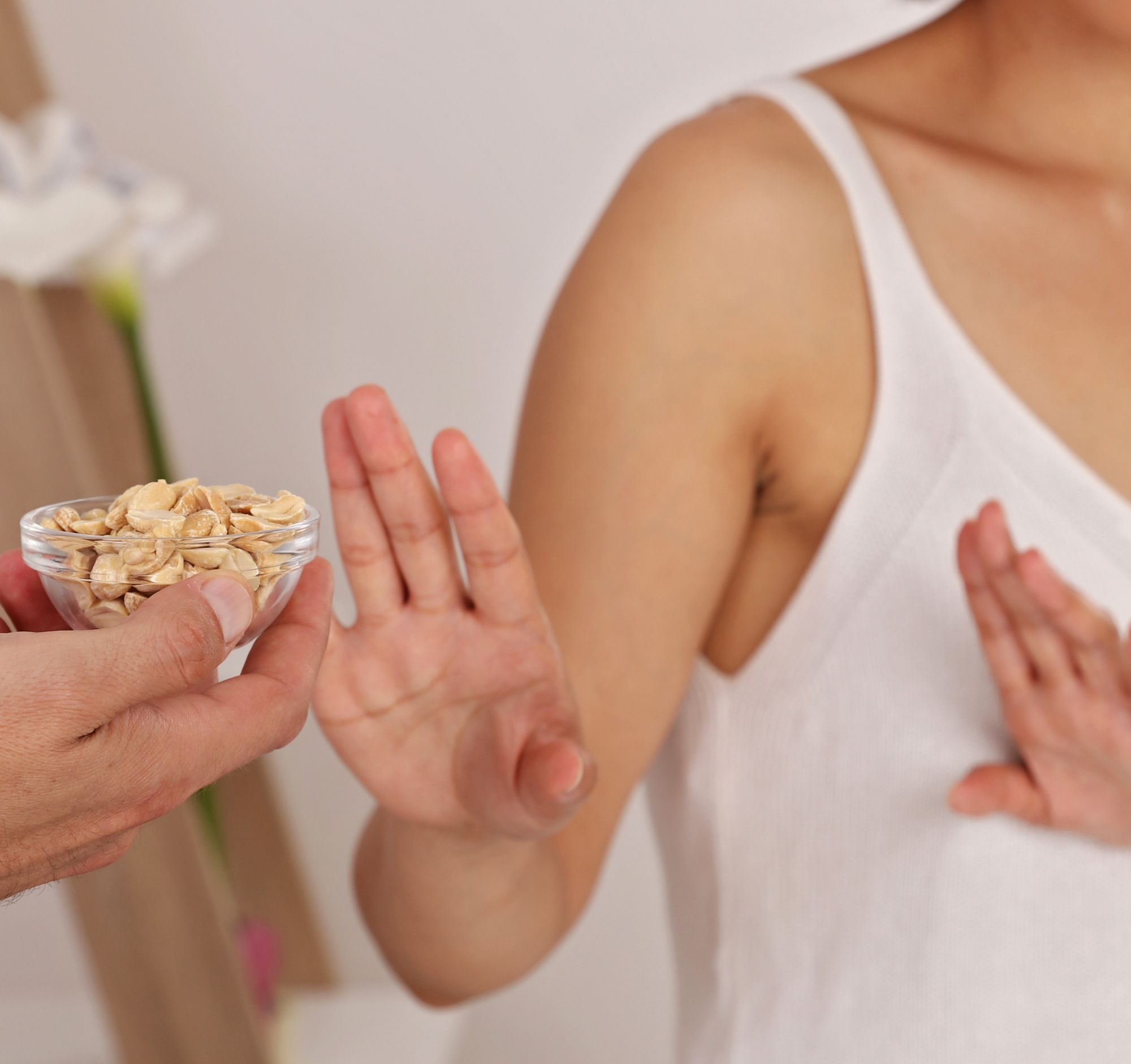
Self Management
Avoiding triggers is a key part of managing MCAS and relieving symptoms. If you have been able to identify specific triggers of your symptoms – for example, specific foods or chemicals, exercise or stress – these triggers should be avoided as much as possible to prevent a reaction.
This can include adopting specific diets such as low histamine or FODMAPS; controlling blood sugar fluctuations can also be beneficial. Some people may need to explore a combination of diets depending on their specific triggers, and if this is complicated, seeking help from either a dietician or nutritionist with knowledge of MCAS can be helpful.
This can also mean careful management of your personal environment, ensuring your home is free of your known triggers or those commonly understood to affect people with MCAS.

Scented products such as candles, perfumes and air fresheners are classic examples of common triggers. Cleaning products can also be problematic for some.
Of course, in many cases, MCAS triggers are challenging to identify and new triggers may continue to develop over time. Sometimes, it is not always practical or even possible to avoid every trigger all of the time, particularly in public spaces.
Certain medicines, such as codeine, are also known to trigger MCAS symptoms. Some people with MCAS also benefit from avoiding non-steroidal anti-inflammatory drugs (NSAIDs), such as aspirin or ibuprofen. Understanding your unique set of triggers can help to better identify which medicines and excipients should be avoided. This should be done with the support of a medical professional.
Many people find they experience significant relief upon isolating their triggers and avoiding them where possible.

Medical Management
Multiple medicines can be used to help alleviate the symptoms of MCAS. These include mast cell stabilisers; which help restore stability to the mast cell and reduce its reactivity to different triggers, and mediator blockers; which block the release or the effect of different mediators released by the mast cell.
Due to the variation in triggers, mediator release and symptoms across individuals with MCAS, a medical treatment that works for one person may not work for another and the response to treatment is not always predictable.
The availability of treatments varies, and some treatments are reserved only for the most severe cases of MCAS. There is hope for the possibility of personalised MCAS treatment in the future, where prescriptions are tailored to a person’s specific cause, triggers and symptoms, but further research is required to achieve this.

An added complication for the treatment of MCAS arises from the possibility that some drugs (or the additives or preservatives in them) can be triggers for MCAS and this may cause an adverse reaction to a medicine.
This can make it a lengthier and more complicated process to identify a successful medical treatment regimen for someone with MCAS. However, with a dedicated ‘trial and error’ approach, under careful medical guidance, many people with MCAS are eventually able to find a medical management process that works for them.
There is more information about specific medications which can be used to treat MCAS which you can share with your medical team here.
Come along to our virtual sessions to meet other people on their journey to self-management.

Rescue Bag - Be Prepared
Living with MCAS can mean that unexpected reactions may occur at any time. Some of our community find that putting together a rescue bag ensures they you have everything they need to manage and mitigate symptoms quickly and effectively.
It's ideal for taking to school or work or to carry when on the go. With all necessary treatments and tools in one place, you can be prepared to manage your MCAS on the go.
You may consider keeping the following in your rescue bag:
Medications (preventative and rescue), Toilet roll (if different toilet rolls are a trigger for you), a Radar key, hand soap (if different soaps are triggers for you), Toilet seat covers to protect you from contact reactions.
Try to choose a bag that has organised compartments, which allows for fast access to critical items and remember to let those close to you know what you are carrying so they can help you if needed.
"Thank you, Thank you, Thank you Mast Cell Action for all the work you do to raise awareness about Mast Cell Activation. The information on the website is so very helpful to share with family and friends and feels like a 'safe space' among all the turmoil this condition brings. I always print off a pile of the PDF symptom infographics and take them with me to every medical appointment I attend. They're a Godsend for busy doctors and nurses - and the response has been so positive. What's more, I recently saw a consultant who was intrigued to hear about my condition. She then mentioned she had similar symptoms and was delighted to take one of the handouts. The receptionist at my local GP practice has also scanned the PDFS into my notes and plans to put one of the posters up in the surgery waiting room to make other people aware of potential triggers. Hooray!" Anonymous, 40-something, Person affected by Mast Cell Activation

What you’ll find here
Resources include:
- Managing symptoms and flare-ups
- Identifying and avoiding triggers
- Diet, nutrition, and lifestyle considerations
- Mental health and emotional wellbeing
- Advocacy and self-management tools
Living with MCAS can be challenging, but with understanding and support, many people find ways to adapt and regain control over their lives.
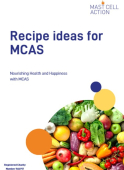
Recipe Ideas for MCAS
From our Nourishing Health & Happiness with MCAS series — simple, nourishing recipes designed to support digestion, comfort, and everyday enjoyment.
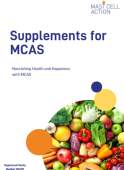
Supplements for MCAS
From our Nourishing Health & Happiness with MCAS series — evidence-informed guidance on supplements that may support wellbeing in MCAS.
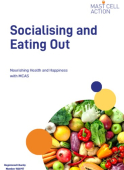
Socialising and Eating Out
From our Nourishing Health & Happiness with MCAS series — practical tips for enjoying meals out and social occasions while supporting your health and comfort.
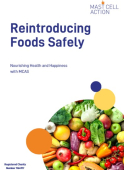
Reintroducing Foods Safely
From our Nourishing Health & Happiness with MCAS series — a gentle guide to reintroducing foods, helping you expand your diet with confidence and care.
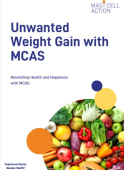
Unwanted Weight Gain with MCAS
From our Nourishing Health & Happiness with MCAS series — explore possible causes of weight changes and find balanced ways to support a healthy body and mind.
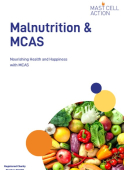
Malnutrition and MCAS
From our Nourishing Health & Happiness with MCAS series — understand the risks of malnutrition with MCAS and learn how to nourish your body safely and effectively.
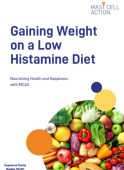
Gaining Weight on a Low Histamine Diet
From our Nourishing Health & Happiness with MCAS series — gentle, practical ideas for maintaining or gaining weight while following a low histamine approach.

Gaining Weight on a Low Dairy Diet
From our Nourishing Health & Happiness with MCAS series, discover nourishing, dairy-free or low dairy ways to support healthy weight gain while meeting your body’s needs.

Eating enough fibre with MCAS
From our Nourishing Health & Happiness with MCAS series — discover simple, gentle ways to include more fibre for better gut health and overall wellbeing.
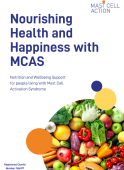
Nourishing Health and Happiness with MCAS
We have worked with registered dietitian, Chloe Hall, to explore some of the most common diets followed by people with MCAS, and the key nutritional concerns that often arise. In this resource, we’ll look at practical ways to support your diet when living with MCAS.
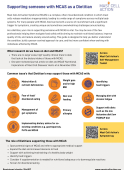
Supporting someone with MCAS as a Dietitian
Supporting Someone with MCAS as a Dietitian is a practical resource designed to help dietitians understand and support people living with Mast Cell Activation Syndrome. It offers guidance on the unique challenges that MCAS presents, particularly around food, nutrition, and symptom management.
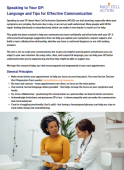
Speaking to Your GP: Language and Tips for Effective Communication
This guide has been created to help you communicate more confidently and effectively with your GP. It offers practical language suggestions that can help you explain your symptoms, request support, and build a more collaborative relationship, whether you have a confirmed diagnosis or are still seeking answers.
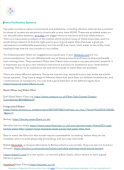
Introduction to Water Purifiers
Handout on different types of water purifiers, created by Deborah Bircham
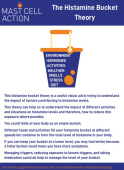
The Histamine Bucket Theory
This histamine bucket theory is a useful visual aid in trying to understand the impact of factors contributing to histamine levels.
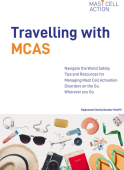
Travelling with MCAS
This downloadable booklet contains tips and resources for managing Mast Cell Activation Disorders on the go, wherever you go.
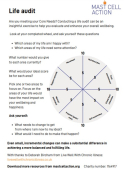
Life Audit
Are you meeting your Core Needs? Conducting a life audit can be an insightful exercise to help you evaluate and enhance your overall wellbeing.
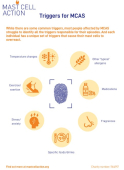
Triggers
This resource details some of the more common triggers of Mast Cell Activation Syndrome.
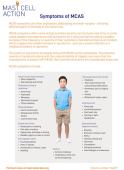
Symptoms of MCAS
This resource details some of the more common symptoms of Mast Cell Activation Syndrome.
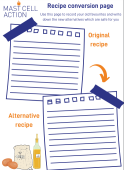
Recipe Conversion
You can use this blank recipe conversion page to note down any MCAS friendly changes you have made to your favourite recipe's.
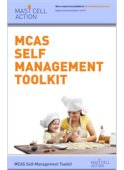
MCAS Self-management toolkit
This toolkit contains information about substances in food and in the environment that can affect mast cell activity or trigger MCAS symptoms. It also includes practical advice to help you understand and avoid these triggers, as needed.
MCAS symptom log
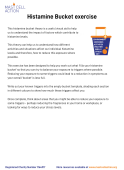
The histamine bucket exercise
This histamine bucket is a useful visual aid in trying to understand the impact of factors contributing to histamine levels.
Ask Ingrid app
A free app developed by the Food Intolerance Network, Australian Society for Public Health. It contains comprehensive information about foods containing histamine, sorbitol, gluten, lactose, fructose and FODMAPs.
Baliza.de. Histamine, fructose & co food intolerance app
A smartphone app that provides practical, evidence-based information about foods containing common triggers such as histamine, tyramine, lactose, fructose, sorbitol and fructose.
Monash University FODMAP app
A smartphone app developed by experts at Monash University. Contains detailed information about foods containing FODMAPs as well as a useful symptom tracker feature.
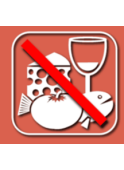
Swiss Interest Group Histamine Intolerance (SIGHI)
SIGHI is an organisation that provides information about histamine-related disorders.
The low histamine chef
Blogs, books and recipes written by the low histamine chef (Yasmina Ykelenstam), a health journalist who has managed her own histamine intolerance for more than 10 years.
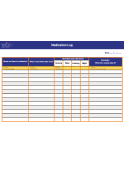
Medication log - adult
A medication timetable to log daily medications
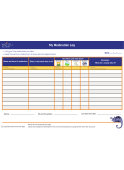
Medication log - children
A medication log blank which you can use to record medications, dosages and medication times in order to keep on track.
Become a friend
Sign up to become a Friend of Mast Cell Action so we can keep you up to date on our progress and on how to get involved in our latest campaigns and initiatives.
Donate
Mast Cell Action relies entirely on the generosity of people like you. Please make a donation now and together we can make a difference to those affected by MCAS.







